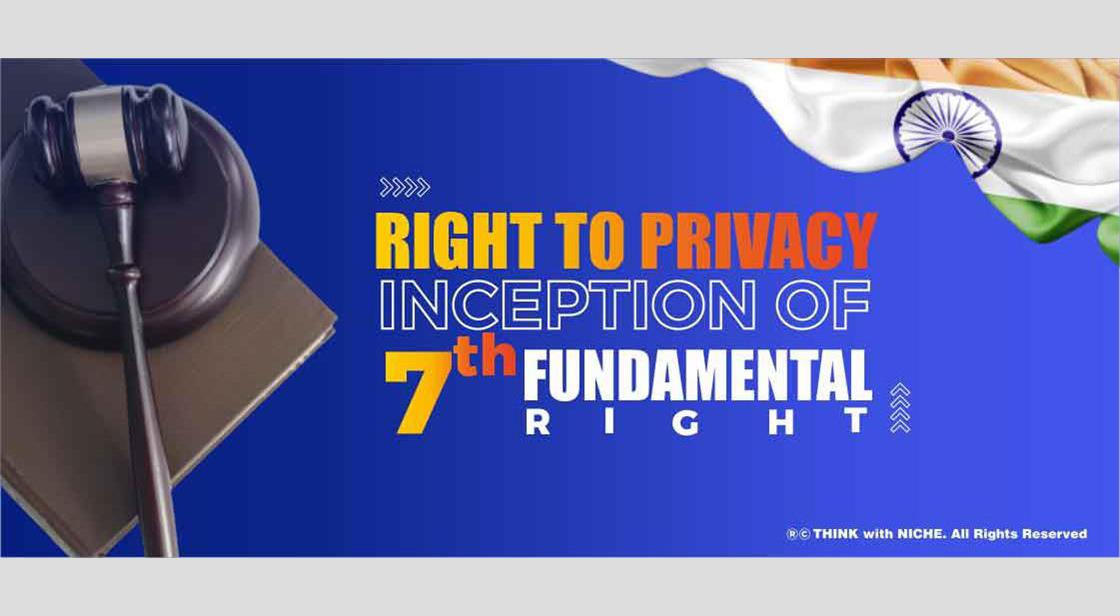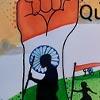Right to Privacy - Inception of 7th Fundamental Right

Blog Post
This article highlights the history of fundamental rights and the procedures by which the right to privacy was declared as the seventh fundamental right in the Constitution of India. It showcases some case studies to emphasize the importance of the right to privacy.
We had seven fundamental rights before 1979, but soon the country was left with only six fundamental rights. Our 7th fundamental right, ‘Right to Property,’ was abolished by the Constitution in 1979 through the 44th Amendment Act 1978. This abolition came to effect on 20th June 1979. These fundamental rights were borrowed from the Constitution of America. After abolishment, only these six fundamental rights are left in our Constitution.
• Right to equality
• Right to freedom
• Right against exploitation
• Right to freedom of religion
• Cultural and educational rights
• Right to Constitutional remedies
After a gap of 38 years, our constitution has seven fundamental rights again. The fundamental right included was the Right to privacy. Before telling how the right to privacy became a fundamental right, first, we should know what the right to privacy is.
Right to Privacy
The right to privacy is the right of a person to be left alone without being disturbed or being observed by anyone. The right to privacy has been a hot topic of debate at international levels. To deal with certain threats internationally, the agencies such as RAW, Interpol, CIA, and GCHQ use the information to diffuse any situation and to keep eyes on through surveillance.
How did the right to privacy become a fundamental right?
In the year 2017, the Indian Constitution got its seventh fundamental right. The supreme court of India gave the groundbreaking decision to make the right to privacy a fundamental right. The Right to privacy became a fundamental right and protected under part III of the Indian Constitution. This decision came when a nine-judge bench said that the right to privacy has its roots originating from the right to life. However, there were consequences of this decision in the future.
This decision came after the case of Puttuswamy v. Union of India, where Puttuswamy challenged the validity of Adhaar (a biometric identity scheme). All the judges in the case signed the one-page order, which made it a fundamental right. This one-page order has many reasons behind it, which were put forward by the judges in 547 pages. The additional opinion of the six judges was also taken into consideration. It created a framework to guard privacy in India. These opinions given by the panel and the judges marked privacy as an inalienable right and intrinsic to liberty and dignity.
Right to privacy has been in the talks for quite a few years (60 years, give or take). Two cases shed light on The Right, with divided opinions. M.P Sharma v Satish Chandra and Kharak Singh v The State of Uttar Pradesh (in 1954 and 1962, respectively).
As per these cases, The Right to privacy was not a fundamental right. The Case of MP Sharma was a peculiar one. The bench said that the drafters who drafted The Constitution of India had no intention of subjection the search and seizure to The Right of privacy. In the case of Kharak Singh, a police regulation got invalidated by the decision. It said that the nightly domiciliary visits were, in fact, an authorized intrusion that violated the liberty of the person in his home.
The decision of the Puttuswamy case came at the same time as the adhaar was going out at full speed. This ambiguity on the nature and privacy (as a right) scope has allowed the government to use the residential data. It formed a database of the biometric identity of 1.25 billion Indians. The original motive for this identity biometric was to make sure every individual gets the benefits of the government schemes. Now, this scheme has the widest acceptance as proof of identity.
You May Like
EDITOR’S CHOICE












